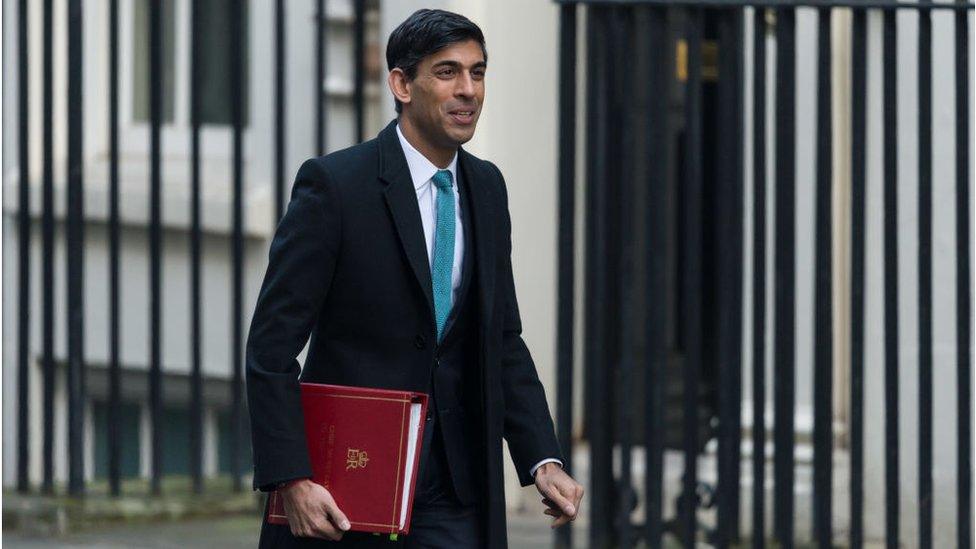Shock resignation poses challenge for Javid's successor
- Published

There was no hint of what was to come from the lips of Chancellor Sajid Javid.
He had been reassured of his future in post, when I spoke to him 48 hours ago.
He was planning not just the Budget, but also a Spending Review, and a finance white paper involving negotiations with the EU over the ongoing access of UK finance to the EU.
His team had signalled the Budget was going to be a significant new chapter in UK economic policy. The first Budget of this government and its healthy majority, able to plan its own long term strategy.
However, there had been a strange series of last minute reorganisations regarding the chancellor's traditional round of interviews on the GDP figures.
This was on the same day and in the same place as the Prime Minister's HS2 announcement.
How much spending?
Mr Javid had crossed swords with the prime minister's top adviser Dominic Cummings, and had won those key battles. First and foremost the chancellor won the argument over manifesto costings and looser but still binding limits on public spending ahead of the election. He also won the argument on HS2.
He had begun to establish his credibility as chancellor after an early few months where he was nicknamed "chancellor in name only", after Mr Cummings summarily fired the chancellor's press aide, having earlier boosted spending to health and police.
But he had also made the argument that now was the time to invest more, as the borrowing rates faced by the government were at historic lows.
The question was - just how much.
Relations between Number 10 and Number 11 are the foundation of any stable government. There should be tensions. The Treasury's role as keeper of the purse strings does not always accord with the short-term political needs of Number 10.
Strategy clash
But the roots of this are a clash over long term strategy - that austerity was over - and that the Conservatives needed to pour money into the regions where their majority was won, and change politics in the UK forever.
The Prime Minister has the title of "First Lord of the Treasury", but it has not always felt that way in recent history. Demanding the firing of his aides is a rather drastic way to assert that power.
Mr Javid's replacement, the well-regarded chief secretary Rishi Sunak, begins his role with a problem. He arrives as a thirty-something Chancellor of the Exchequer, appointed in part because of a vacancy caused by Number 10 trying to assert itself over Number 11.
Will he stick to Sajid Javid's recently announced new fiscal rules? Or does he open the chequebooks further? The first Budget of any parliament is traditionally the moment to get the bad news out of the way, on for example tax rises.
But it is difficult not to see this development as an attempt to loosen the fiscal straitjacket further, ahead of that Budget.
- Published3 February 2020
- Published3 February 2020
- Published31 January 2020

